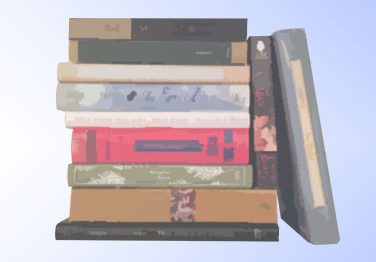I was interested in reading Till I End My Song simply because the premise of gathering “last poems” together intrigued me. There may also be poets included in the anthology that I may never have read and, why not, I should read some more poetry. Well, I did like all the poems. I found some new poets or unfamiliar pieces from poets I’ve read before, so five stars to the poets, but the criticism and editing for this book is weighting it down. A lot.
This anthology is edited by Harold Bloom, which might be a self-explanatory statement and you can stop reading my review here if Bloom turns you off completely (I will say that he refrains from mentioning Falstaff or Hamlet on every page, a complaint I had about Shakespeare: The Invention of the Human).
Is Till I End My Song a book for lay people? Is it for those making a serious study of the subject of poetry and are already well-read in poetry? I can’t tell. There are frequent references made to other poets and critics (like Walter Pater, who has no work included in this volume) with no other elaboration leading me to believe this is not intended for the lay public, although it seems to be marketed that way. The annotating is hit-and-miss; some poems have a great deal of annotating but some have absolutely no annotating and they need it (particularly those retaining original spelling and punctuation, like Raleigh’s “The Ocean to Cynthia” for which I will can’t quite decide what “consayte” is meant to be). The poets’ introductory bios seem too perfunctory in certain cases (like John Wilmot, Earl of Rochester’s) or overly effusive (like Byron’s and T.S. Eliot’s). Bloom’s editorial decision-making also leaves a gap. He chose to use three definitions of “last”: literal “last poems”, poems meant to mark the end of a career, or (and this one is the wobbliest category) poems “that seem to [Bloom] an imaginative conclusion to a poetic career”. He also made the decision to not represent some poets because he “could not locate in them a distinguished last poem in any of [his] three senses” (like Chaucer and Ezra Pound). This anthology is also entirely British until the inclusion of Emerson halfway through (poets are arranged chronologically by birth), largely male (there is no Sylvia Plath, Marianne Moore, or Anne Bradstreet), and, with few exceptions, white (there are no poets of the Pacific Rim, no Native Americans, no Langston Hughes).
What would I have liked to see in this book? A true collection of last poems, with far less subjective “picking and choosing” by the editor, grouped by perhaps situation (poets who died by their own hand, poets who worked through long illness before death, poets who died suddenly, poets who lived to be quite old vs. poets who died young, etc.), from all areas of the world linked together by commentary about common forms and imagery. In short, more objectivity is needed and less carping about the rise of cultural studies, etc., in the poets’ short biographies because I’m pretty tired of nearly every Bloom book complaining about how “cultural studies” is maligning “The Canon”.
I’ve come down pretty hard on the editing for this volume, but in no way should that reflect on the poets’ work contained within. Like I said, five stars to the poets. If anything, this volume can be used as a jumping-off point to find new poets to read. Some of the poems are quite familiar (Emily Bronte is represented by her haunting “No Coward Soul is Mine”, T.S. Eliot by the “Little Gidding” section of Four Quartets), some are not (I had not read any Amy Clampitt before and, shamefully, she’s an Iowan). Skip the commentary and read the poems aloud instead.
Dear FTC: I received a review copy of this book from the publisher.






